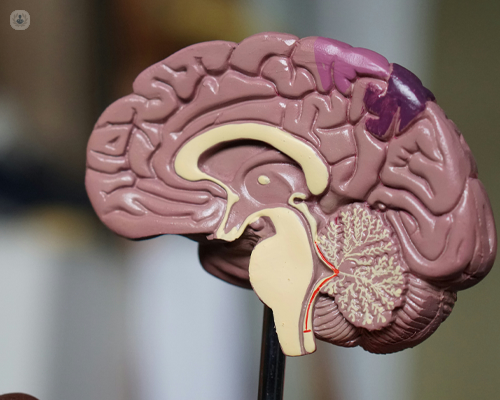How can a neurophysiologist help you if you suffer from epilepsy?
Escrito por:A neurophysiologist plays a key role in diagnosing and managing epilepsy, offering a range of services that can greatly improve the quality of life for those suffering from this condition.
Leading consultant neurologist and clinical neurophysiologist Dr Nikolaos Tsarouchas discusses how they can help in this informative article.

Diagnosis and monitoring
Neurophysiologists use specialised tests to assess brain activity, with the most common being the electroencephalogram (EEG). An EEG measures electrical activity in the brain and can help identify abnormal patterns associated with seizures. During this test, electrodes are placed on the scalp to detect and record brain waves, which can help confirm the diagnosis of epilepsy and pinpoint the type of seizures a patient is experiencing.
Identifying seizure triggers
By analysing EEG data, neurophysiologists can identify patterns in brain activity that may suggest specific triggers for a patient’s seizures. These could include sleep deprivation, stress or flashing lights. Understanding these triggers allows patients to make lifestyle changes that reduce seizure risk.
Pre-surgical evaluation
For patients with drug-resistant epilepsy, surgery may be considered as a treatment option. In such cases, a neurophysiologist can perform video-EEG monitoring, which combines video recordings of the patient’s seizures with EEG data. This helps to locate the precise area of the brain where the seizures originate, guiding the surgical team to the correct area for intervention.
Optimising treatment plans
Neurophysiologists work closely with neurologists and other specialists to tailor treatment plans for epilepsy patients. This could involve adjusting medication doses based on EEG findings or recommending non-surgical treatments like vagus nerve stimulation (VNS). Their expertise ensures that patients receive the most effective treatments based on their individual needs.
Ongoing monitoring and support
Even after an epilepsy diagnosis is made and a treatment plan is established, a neurophysiologist remains an essential part of the care team. Regular follow-up EEGs and monitoring are often necessary to assess treatment efficacy and make adjustments if needed.
By offering these services, neurophysiologists provide invaluable support in diagnosing, managing, and treating epilepsy, ultimately improving the patient's ability to live a more stable and seizure-free life.
Do you require expert neurophysiology treatment? Arrange a consultation with Dr Tsarouchas via his Top Doctors profile.


